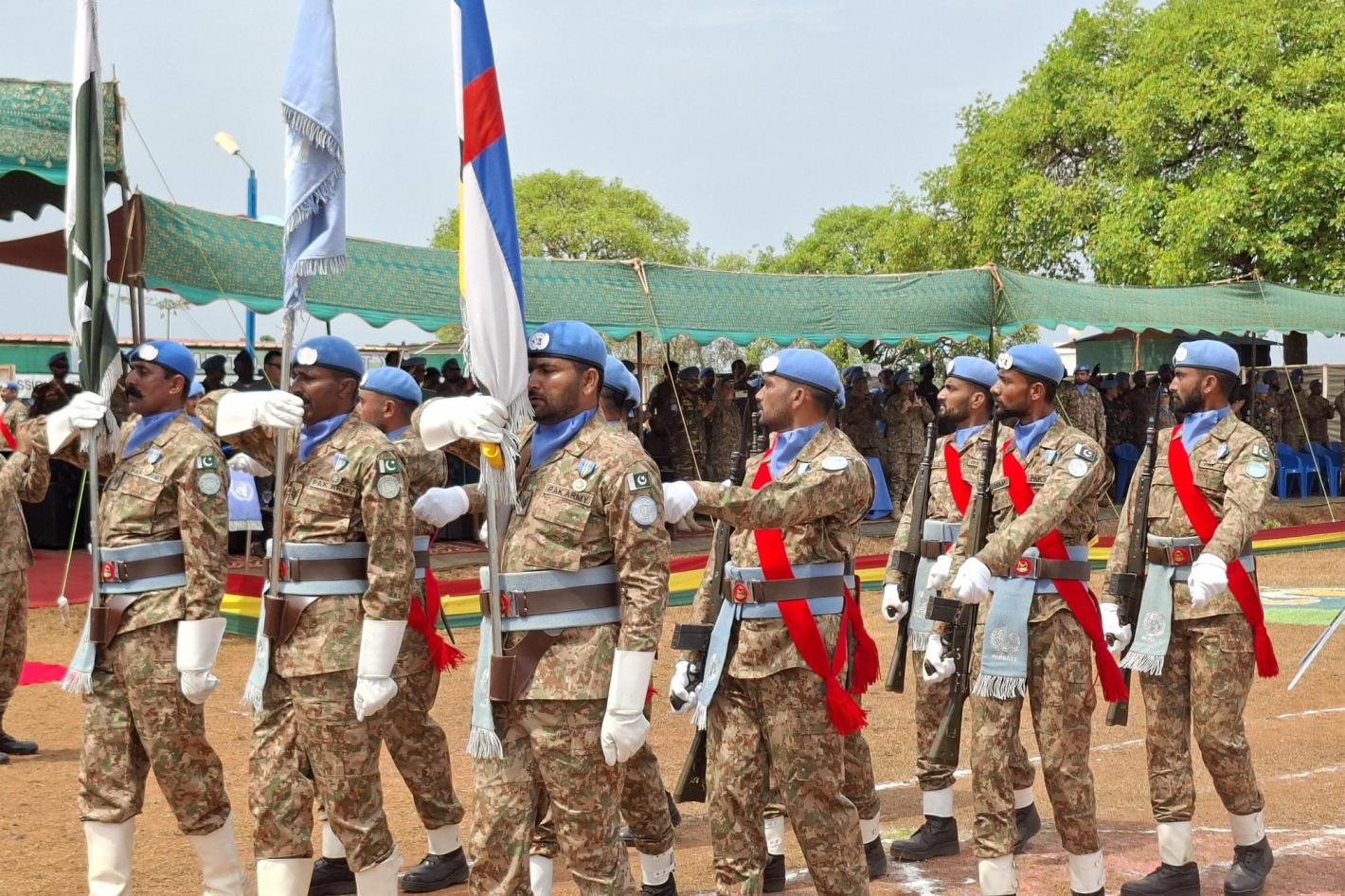Voter education took centre stage at a training workshop for leaders of civil society organizations who will engage with the electorate in the run-up to the upcoming elections in the Central African Republic (CAR). The “Support project for the electoral process” four-day training series was jointly organized by the MINUSCA through its Civil Affairs Section, Electoral as well as the Strategic Communication and Public Information Divisions, and UNDP in support of the CAR National Elections Authority (ANE) at the Stade 20,000 Places in Bangui on 20-24 November 2020.
With preparations for the CAR 2020/2021 election cycle in full swing, the 80 participants from 27 civil society organizations – representing youth, women and religious leaders as well as artists and media professionals – will play a crucial role in working to inform the electorate on their rights and obligations at the polls. They will conduct electoral training within their organizations and be deployed to the field to raise awareness on the election process.
Analysis of the CAR electoral code topped the workshop agenda: the rules and regulations governing the election apparatus to include electoral lists and polling locations, eligibility requirements for both candidates and voters, the role of the National Election Authority and electoral litigation were discussed.
Particular attention was also given to combating disinformation and electoral violence. Participants explored techniques for social mobilization, the management of rumors during the election period, electoral ethics and key messages to encourage massive voter turnout.
“It is vital to have a conscious electorate that understands the importance of elections, the role of public discourse through mass media and the mechanisms of electoral violence such as hate speech and how to prevent it,” said Albert Mbaya, the Director of Communication at the National Election Authority.
Augustine Akondi, from the organization Youth for Development, works to promote the political participation of women in elections. “The workshop expanded my understanding of electoral processes – what voting means and the importance of accepting election results – knowledge that I will pass on to my fellow Central Africans while urging them to vote in a spirit of peace,” she said.
“Many people believe that all information in the public domain can be trusted. The training has taught me the importance of verifying all election-related information to make sure that it is reliable,” said Melchoir Omokonzoyen, a representative of young religious leaders from the Parish of Our Lady of Fatima in Bangui.
MINUSCA Civil Affairs Coordinator Josiane Tiya hopes that the training will“strengthen the technical and operational capacity of civil society organizations, forbetter coordination of their electoral education activities and effective involvement in voter awareness initiatives”.
UN Security Council Resolution 2552, that recently renewed MINUSCA’s mandate, “urges the CAR authorities and all national stakeholders to ensure the preparation of inclusive, free, fair, transparent, credible, peaceful and timely presidential, legislative and local elections in 2020 and 2021” while tasking the Mission with coordinating international electoral assistance “by offering its good offices, providing security, operational, logistical and … technical support”. The elections are set to commence on 27 December 2020.






